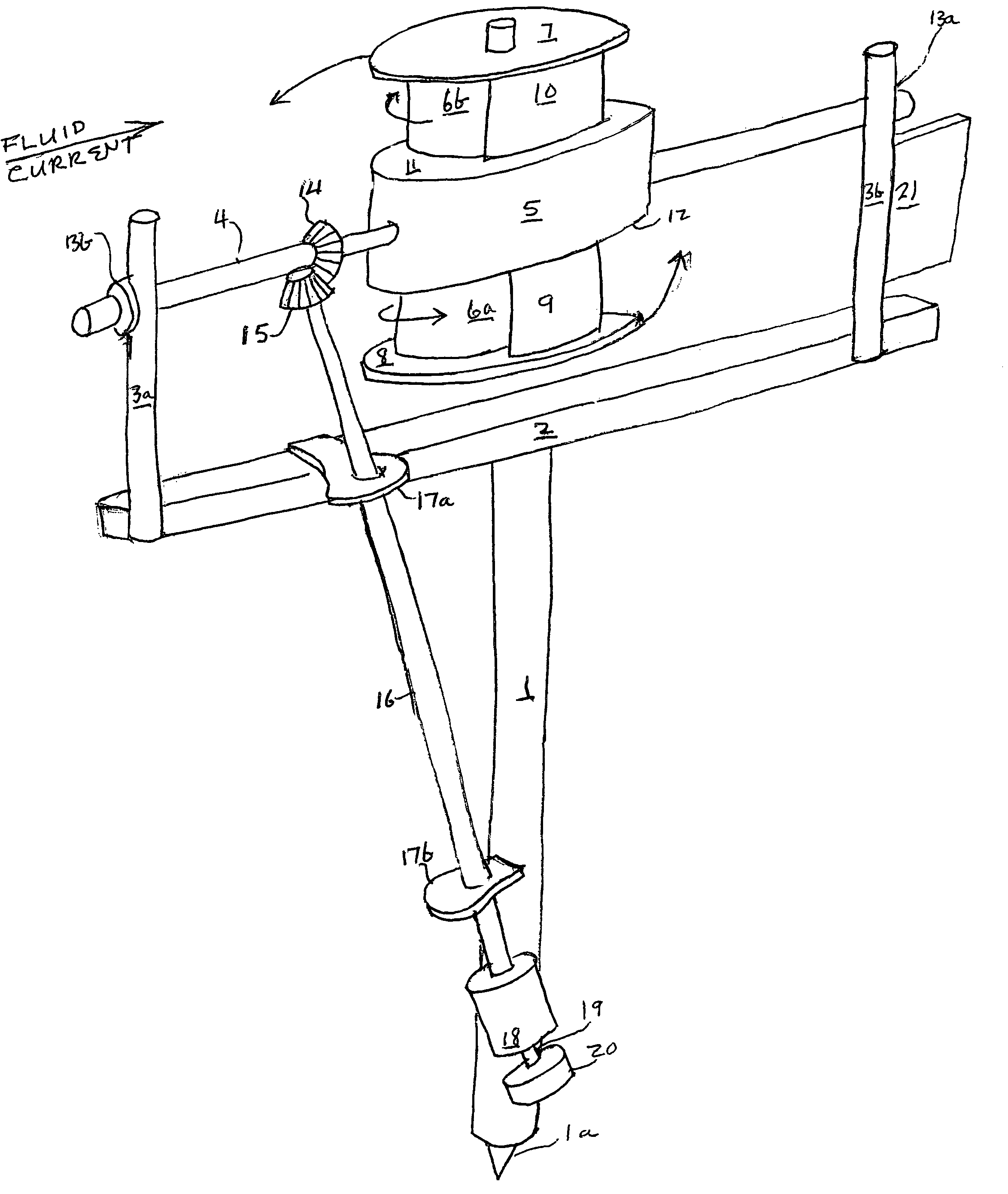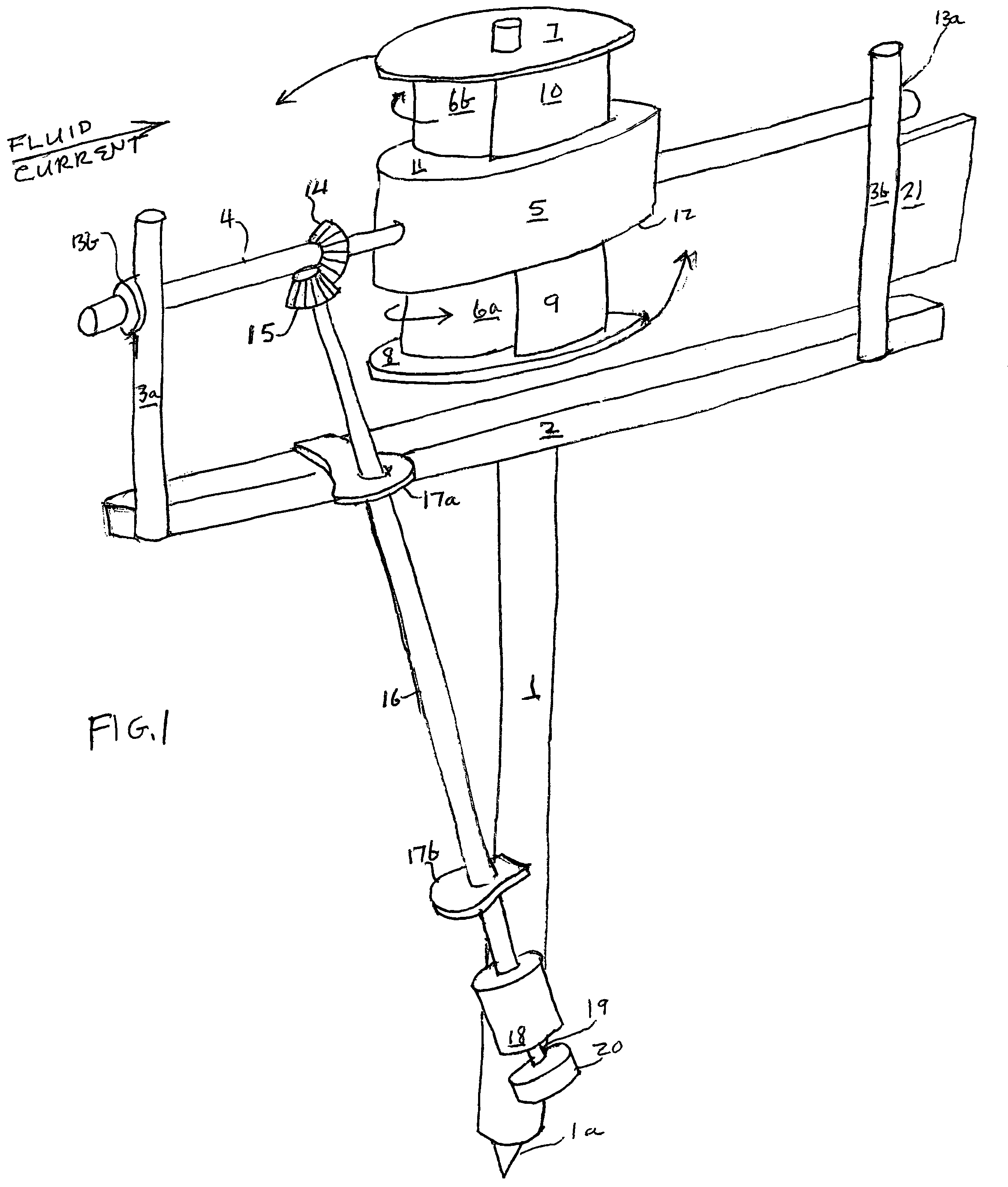Turbulence reduction around magnus rotors
a rotor and magnus technology, applied in the direction of machines/engines, mechanical equipment, electric generator control, etc., can solve the problems of increasing the drag/lift coefficient as much as possible, the same angular velocity as the rotor was ineffective in reducing the induced drag on the end surface of the rotor, and the wind turbine efficiency is severely limited
- Summary
- Abstract
- Description
- Claims
- Application Information
AI Technical Summary
Benefits of technology
Problems solved by technology
Method used
Image
Examples
Embodiment Construction
[0017]Fixedly attached to pivot 1a is vertical pole 1, Horizontal support 2 is a long square pipe fixedly attached to the top of vertical pole 1. Shaft 4 is supported at the tops of vertical supports 3a,3b by ball bearing mounts 13a,13b. These vertical supports 13a,13b are fixedly attached to either end of horizontal support 2.
[0018]Shaft 4 is therefor parallel to support 2. Fixedly attached to shaft 4 are attached Magnus Rotors 6a,6b driven by motors in the manner of prior art. Fixedly attached to vertical support 3b is weathervane 21. Also fixedly attached to shaft 4 are motor housing 5, endplates 7,8,11,12, and rotor tails 9,10 as taught by Holland in the prior art. These attachments to shaft 4 are revolved with shaft 4. Also mounted fixedly on shaft 4 is bevel gear 14. Meshed with bevel gear 14 is a second bevel gear 15. Shaft 16 is operatively attached to bevel gear 15 on one end and on its other end is operatively attached to speed changer 18 which is bolted to vertical pole 1...
PUM
 Login to View More
Login to View More Abstract
Description
Claims
Application Information
 Login to View More
Login to View More - R&D
- Intellectual Property
- Life Sciences
- Materials
- Tech Scout
- Unparalleled Data Quality
- Higher Quality Content
- 60% Fewer Hallucinations
Browse by: Latest US Patents, China's latest patents, Technical Efficacy Thesaurus, Application Domain, Technology Topic, Popular Technical Reports.
© 2025 PatSnap. All rights reserved.Legal|Privacy policy|Modern Slavery Act Transparency Statement|Sitemap|About US| Contact US: help@patsnap.com


